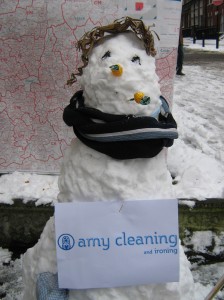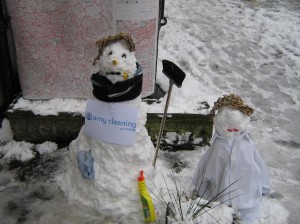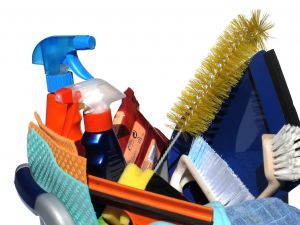Here are some excellent tips on what to do if you are having problems with your cleaner
“The house does not look clean when I return home; I think my cleaner is not doing her job properly”.
If you are in this situation, first speak to the cleaner to raise your concerns, try to understand and get an explanation from her of why she is not able to do a professional job.
Normally your cleaner will give you great information and the problem is easily solved. However if not, speak to your agency, for example http://www.amycleaning.co.uk have a group of professionals able to re-train or coach your domestic cleaner to improve her job.
“My domestic cleaner does not pay attention to detail; she always forgets to hover underneath the bed and sofa”
Before you rush to blame your domestic cleaner for the state of your house when you return from work, ask yourself some questions:
Sometimes your domestic cleaner can struggle with the hours and the amount of work that she has in your house. All cleaners, even the best ones, will find it difficult to finish on time and do a good cleaning on the first visit.
Very often we find that the cleaner is spending a lot of their time doing something that is not important to that specific customer. This is often something that one of their other customers wants, but you do not feel is important. Once they do this task less often, then they have time to do what you actually want.
For example your cleaner may be deep cleaning your oven on every visit, when actually you only want it done once per month. this change means they now have lots of time to iron all your shirts.
It is always a good idea to leave a note with the tasks that you want your domestic cleaner to follow. This way she will find it easier to re-organise her work the way you expect it.
If this “soft” approach does not work, call the agency to explain them the situation.
“She keeps re-organising my stuff!”
You will need to do some preventive work on this one. Speak with your domestic cleaner on the first visit to establish some rules: “if you find something underneath the bed, put it on top”; “if there is any paper/documents on the desk, leave them on the same place”; “dust the shelves in the bathroom but leave bottles on the same place”;…
Each customer will have different requirements on this issue and without communication the cleaner has to guess which one you like, sadly the odds are never high on guessing what you like.
“The watch has disappear from my room”
There is never an excuse for theft. If you use a good agency that has vetted your cleaner then this is not something that happens. This usually happens when someone has hired a house cleaner from an ad in a newsagent window and has not taken the time to vet them properly.
This is a concerning issue though and an event like this is very distressful.
If you are thinking of hiring a domestic cleaner then it is always right to minimize temptations. It is not nice for the cleaner if there is money, expensive jewellery and other things about.
Do not leave your valuables on sight. It is not about not trusting your cleaner, but trying to avoid temptation.
If you already have a domestic cleaner and suspect that she has taken something, make a list of everything that have gone missing and contact the domestic cleaning agency in case you hired the cleaner through them.
However do always be careful to check things out first, as most accusations are later followed by the client finding the item in an unexpected place.
“It is impossible to speak with my cleaner, she does not speak English and she does not understand me!”
It will not take too much time until your domestic cleaner starts having good level of English. Meanwhile, just make sure that you leave a note for her with the tasks that you require for the day; always write short sentences that would be easier to understand.
It is far easier for a cleaner to read and write things as they can do this at their own speed. This is because with verbal communication the cleaner has to keep up with the speed of hearing what is being said and giving a prompt verbal response.
Generally domestic cleaners with not a lot of English knowledge tend to have strong domestic cleaning skills; they know they need to give their best on their job as they have no possibility of finding work on any other sector where English is required.
“I have lost so many days off work! My domestic cleaner is never on time!”
Prevention is essential on these situations. When you first meet your domestic cleaner make it clear that time keeping is essential for you, that you will not tolerate any unexcused absence.
If there are any issues, it is always best not to ‘tell your cleaner off’, just express that regrettably you are not able to work with them if this issue happens again. There is no need for conflict, it is simply that you are not able to wait around as you have other things to do.
If your domestic cleaner is still arriving late to the appointments, you may need to think about changing the cleaner if you hired her directly. If you use a domestic cleaner through a house cleaning agency, it is even easier to change your current cleaner for a more reliable one.







